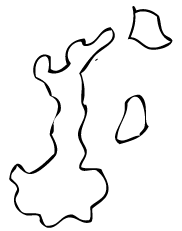Open Knowledge has recently published its Report on the Open Knowledge Festival 2014 in Berlin. One of the most interesting workshops was called “Can Open Data Go Wrong“, “a safe and private conversation space for all those who wish to share their experiences of open data snafus, ranging from hilarious to perilous, with the goal of transparently learning from our failures”. You can find the Etherpad of the session and the podcast including an interview with the organizers Mushon Zer-Aviv and Tin Geber.
Here I would like to start to write down a list of potential risks of Open Government and citizen participation. I know it’s a long list, but I will start from some basic items from a discussion we had yesterday in the “Government Information Strategy and Management” class at the Rockefeller College, State University of New York.
From the point of view of a senator of a OECD Country:
- Media are more interested in my personal expenses than in tracking the real use and impact of public money
- Trust in government decreases at a point that Democracy fails
- Only the “usual suspects” participate in the consultation I promote
- Very limited public value from OpenGov initiatives
From the point of view of the CIO of a public agency:
- Open Data are misinterpreted
- Infomediaries are not ready to understand my data and no “ecosystem” is created
- Few people are (re)using my data
- No “new Facebook” is created thanks to the last app contest I launched
- I don’t have the money / tools / skills to process external input
- Cases of real collaboration with citizens are very limited (other examples after Peer-to-Patent?)
- I have no real collaboration with other agencies on data standards and interoperability, no data created “as ready to be published”
- No money to spend on OpenGov
From the point of view of an Open Government advocate:
- Some data are there, but are not really relevant. Transparency is only on trivial issues
- Open Data are available but data are poor quality, aggregated, difficult to understand
- Open Data are altered, manipulated
- Open data as a “gift” from the government, not a right of the citizen
- We scraped Open Government Data and created interactive visualizations but nothing happened, because:
- people don’t know that our tool is available
- people are not interested
- people cannot interpret the data
- Open Government tools empower who is already empowered
- Government is not listening, game over.
Any other points to add?


Additional point: citizens not motivated to engage in Open Gov
inhomogeneity of data collection at source
Thanks Alba! I can include it as a specification of “Open Data are available but data are poor quality, aggregated, difficult to understand”. Do you agree?
I think so 😉 thanks